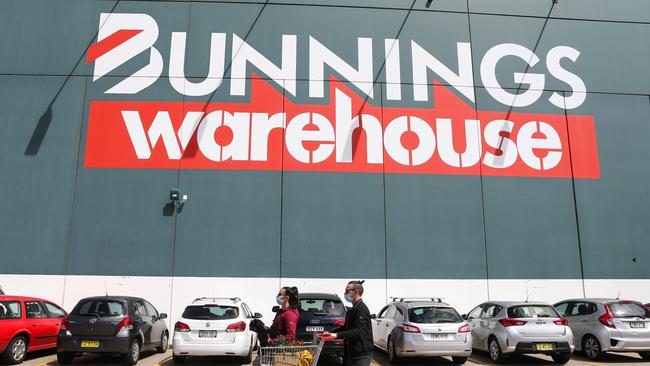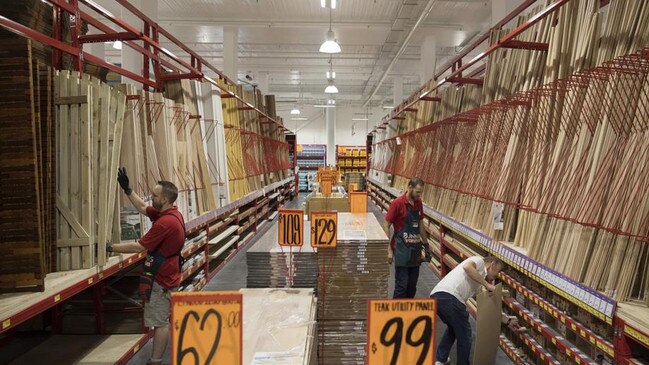
The combination of these two dramatic events means that Bunnings will not be the only retailer of discretionary items that gets caught with serious overstocking.
We have been watching total Australian consumer confidence decline during most of 2022. This week’s ANZ-Morgan consumer survey showed that from the lower levels, Victoria, WA and Queensland consumer confidence was rising but NSW and SA continued to fall.
On checking with the retail middle management brigade, I detect that in NSW the market is very fickle and is causing them unease.
I spent time in Sydney this week to get a better feel for what is ailing the state.
Floods in large parts of eastern Australia have had a severe impact on many regional markets, but NSW has been the worst affected.
In time the waters will recede and massive injections of money will be required in the rebuilding program.
But right now in many parts of Sydney, there is deep unease about the residential property market. Sydneysiders have deep, longstanding confidence in the value of their homes as a store of value and prosperity.
Accordingly, they have been far more confident in borrowing large sums to fund purchases of dwellings that, until recently, just kept rising in price.
That confidence was shared by the banks and of course ballooned by the “assurance” by the Reserve Bank that interest rates would not rise until 2024.
But now those houses are falling in price, and the shock is felt more deeply in Sydney than in any other state capital. And although there is a shortage of labour, people in management positions with two incomes realise that if one of them was retrenched they could be in desperate trouble – a nagging inner fear that sometimes impacts decision-making on discretionary purchases. It was noticeable that in the Bunnings cutbacks, the cuts came in the administrative area.

Interest rate rises on these gigantic loans involve large amounts of money so while many families have buffers, the cash outlays will impact their spending noticeably – particularly as many are funding their 2022 Black Friday spending spree plus Christmas on credit.
The full impact of the recent interest rate rises on flexible rate mortgages will hit around January and February, and then as 2023 proceeds the looming massive conversion of fixed-term loans to current rates will hit families with a machine gun.
At the same time, rents are rising. No city will be more impacted than Sydney and while there is no panic, there is a sense of unease that is impacting discretionary spending.
After Christmas those impacts will become much more severe and that’s why the companies that have ordered too much stock know what is ahead of them.
I don’t know just how the Bunnings decision-making process allowed the over-ordering of stock, but let me canvas some of the dangerous forces that other retailers are coming to grips with.
First, in 2021 and for most of 2022, discretionary retailers have been struggling to cope with the consumer spending boom and the need for stock.
The huge rises in profits created a feeling of inner confidence, which can be very dangerous on the turn down because orders have to be made well in advance.
Earlier this year, when the decisions were being made for Christmas stocking, it was hard to obtain goods from China. Prices were rising and the cost of containers was through the roof. It was very tempting to over-order.
But the market went the other way. We are seeing in America that discretionary spending is in noticeable decline.
Many US retailers saw it coming and cut back their Chinese ordering.
Even more seriously, the warlike pronouncements and trade restrictions from the Chinese President have caused many American retailers to substantially diversify their supply chain out of China, using domestic or other country suppliers.
All the current publicity in China concentrates on the nation’s mishandling of the Covid-19 crisis and the shutdowns and protests.
But in many ways, the decline in US ordering is an even bigger problem.
The bottom line for Australia is that goods are arriving much faster, prices are down and the cost of shipping has fallen dramatically.
Retailers are therefore experiencing something their younger executives have not seen before – current imported stock is costing less than the stock purchased in past months that is still in the warehouse. Auditors will notice this in valuing stock.
And there is a second hazard in dealing with China.
In former times, major retailers sent Australians skilled in our local demand to China to arrange the buying and delivery.
It’s no longer safe for Australians (or Taiwanese) to do that job because they might become marooned in China.
So Australian retailers have had to train Chinese executives to work with Chinese manufacturers in the ordering and delivery process.
This requires a whole new range of skills and increases the risk factor at a time of great change.
At this point, we are not looking at a collapse situation but rather a set of warning signs of what might happen after Christmas, led by Sydney.






Australia’s consumer powerhouse, the state of NSW, is struggling. At the same time, the rules of buying goods in China are changing rapidly and require different skills.